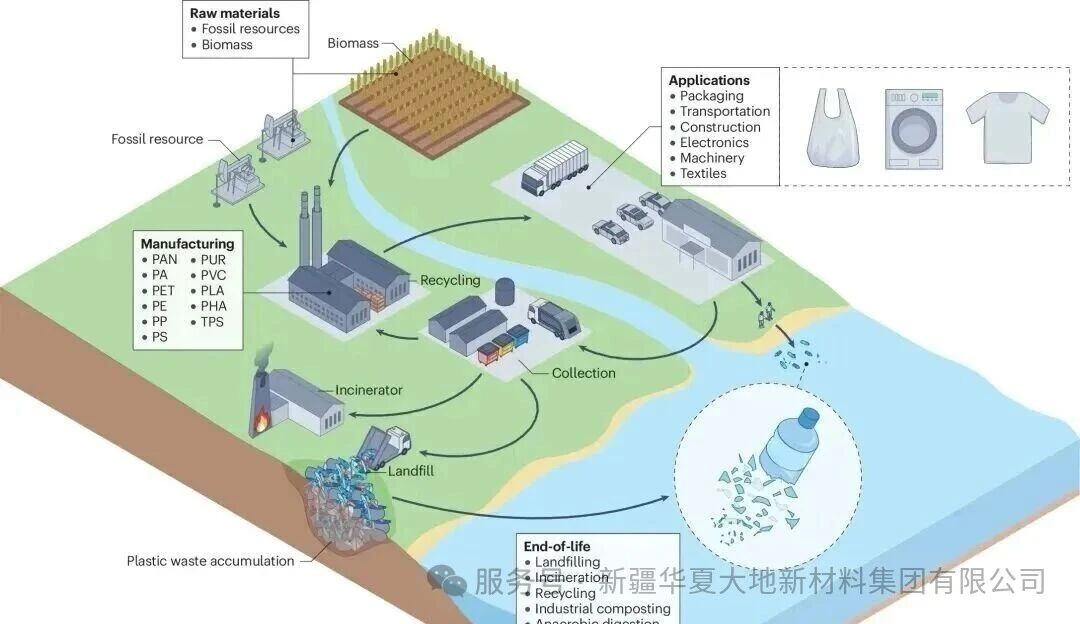As the year 2025 marks the deepening stage of the 14th Five-Year Plan, the government will continue to deepen supply-side structural reform and promote high-quality development, covering multiple aspects such as strengthening green and low-carbon transformation, encouraging technological innovation, and improving people's livelihood security. For green packaging, 2025 is also the year when various targets for restricting and banning plastic products are to be achieved.
National-wide regulations on restricting and banning plastic products
In 2020, the Office of the Ministry of Commerce issued the "Notice on Further Strengthening Plastic Pollution Control Work in the Commerce Sector":
By the end of 2025, all postal and express delivery outlets across the country will be prohibited from using non-degradable plastic packaging bags, plastic tapes, and disposable plastic woven bags. At the same time, all urban areas of prefecture-level cities and county-level cities in coastal areas will also be prohibited from using non-degradable plastic bags in open-air markets.
By the end of 2025, the consumption intensity of non-degradable disposable plastic tableware in the catering delivery sector of prefecture-level cities should decrease by 30%. In addition, catering dining services in county-level cities' urban areas are also prohibited from using non-degradable disposable plastic tableware.
Prohibition and Restriction of Plastic Use Regulations in Each Province
Beijing City
In 2020, Beijing released the "Beijing Plastic Pollution Control Action Plan (2020-2025)", which stipulated that by 2025, commercial wholesale, retail and catering entities should stop using non-degradable plastic products and promote the use of non-plastic products such as environmental-friendly cloth bags, paper bags, and degradable shopping bags.
Shanghai City
In 2020, Shanghai released the "Implementation Plan Notice on Further Strengthening Plastic Pollution Control", requiring that by 2025, all postal and express delivery outlets in the city should prohibit the use of non-degradable plastic packaging bags, plastic tapes, and disposable plastic woven bags, in order to reduce plastic pollution.
Guangdong Province
In 2020, the Guangdong Provincial Development and Reform Commission issued the "Implementation Opinions on Further Strengthening Plastic Pollution Control". In 2023, this opinion was further strengthened and expanded. It was proposed that by the end of 2025, all star-rated hotels and other venues in the province would no longer provide disposable plastic products. Postal and express delivery outlets across the province would be prohibited from using non-degradable plastic tapes, and the application rate of tape-free cartons would be increased to over 20%.
Zhejiang Province
In 2021, the Development and Reform Commission of Zhejiang Province issued the "Work Plan for the Governance of Excessive and Arbitrary Packaging of Mail and Express Items in Zhejiang Province (2021-2022)", which stipulated that by 2025, the consumption of packaging materials for express deliveries across the province would be reduced, and e-commerce express items would basically no longer require secondary packaging. The application scale of recyclable express packaging would also expand.
Henan Province
In 2024, the government of Henan Province issued the "List of Prohibited and Restricted Non-Biodegradable Disposable Plastic Products in Henan Province". This regulation stipulates that by 2025, the production, sale and use of these plastic products will be prohibited or restricted throughout the province.
Sichuan Province
In 2020, the Administration for Public Institutions of Sichuan Province issued the "Notice on Further Promoting the Work of Prohibiting the Use of Non-degradable Disposable Plastic Products in Public Institutions throughout the Province", requiring that by the end of 2025, all public institutions in the province should completely stop using non-degradable disposable plastic products.
In 2021, Sichuan Province issued the "Action Plan for Plastic Pollution Control in the Civil Aviation Industry of Sichuan Airport Group Co., Ltd. (2021-2025)", clearly stating that by 2025, Shuangliu and Tianfu airports, among others, will completely prohibit the use of disposable non-biodegradable plastic bags and other plastic products.
Yunnan Province
In 2021, the Development and Reform Commission of Yunnan Province, the Provincial Postal Administration Bureau, and other departments jointly issued the "20 Measures on Accelerating the Green Transformation of Express Packaging". These measures stipulate that by 2025, e-commerce express packages should basically no longer require secondary packaging, and the application scale of recyclable express packaging should be expanded.
In 2025, with the active promotion of the national and provincial governments, the use of non-biodegradable plastic products will be strictly restricted or even completely banned, from postal and express delivery to catering takeout, from open-air markets to five-star hotels. This marks a solid step forward in China's green and low-carbon transformation journey.
Countdown to the "Plastic Ban" in Four Key Areas
【Category 1: Non-biodegradable Plastic Bags】
"By the end of 2020, commercial areas, supermarkets, pharmacies, bookstores, and other venues in the urban areas of municipalities directly under the Central Government, provincial capitals, and designated cities shall prohibit the use of non-biodegradable plastic bags. In the same vein, the use of non-biodegradable plastic bags in open-air markets shall be regulated and restricted; by the end of 2022, the implementation scope shall be expanded to all prefecture-level and above cities' urban areas and county-level cities in coastal areas. By the end of 2025, the use of non-biodegradable plastic bags shall be prohibited in open-air markets in all aforementioned areas."
【Domain 2: Disposable Plastic Utensils】
"By the end of 2020, the catering industry across the country will be prohibited from using non-degradable disposable plastic straws; in the built-up areas of prefecture-level cities and tourist attractions, catering dining services will be prohibited from using non-degradable disposable plastic utensils. By the end of 2022, in county-level built-up areas and tourist attractions, catering dining services will be prohibited from using non-degradable disposable plastic utensils. By 2025, the consumption intensity of non-degradable disposable plastic utensils in the catering delivery sector of prefecture-level cities will decrease by 30%."
【Domain 3: Plastic Products for Hotels and Guesthouses】
"By the end of 2022, all star-rated hotels and guesthouses across the country will no longer provide disposable plastic products voluntarily. They can offer related services by setting up self-service purchase machines or providing refillable cleaning agents; by the end of 2025, the implementation scope will be expanded to all hotels, guesthouses, and homestays."
【Category 4: Plastic Packaging for Express Delivery】
"By the end of 2022, postal and express delivery outlets in Beijing, Shanghai, Jiangsu, Zhejiang, Fujian, Guangdong and other provinces and municipalities will be the first to prohibit the use of non-degradable plastic packaging bags, disposable plastic woven bags, etc., and reduce the usage of non-degradable plastic tapes. By the end of 2025, all postal and express delivery outlets across the country will be prohibited from using non-degradable plastic packaging bags, plastic tapes, and disposable plastic woven bags."
With the deep implementation of the plastic ban policy, the demand for degradable and environmentally friendly packaging materials in the market will increase sharply, providing a broad development space for the biodegradable products industry. Under the guidance and support of the policy, green packaging enterprises are expected to embrace unprecedented development opportunities and become an important force driving the development of the green packaging industry, jointly contributing to the comprehensive green transformation of China's economic and social development.







